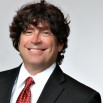April 2, 2017
Dependent Claims Were Anticipated While Independent Claims Were Not
In Duncan Parking Technologies, Inc. v IPS Group, Inc., [IPR2016-00067] (March 27, 2017) the PTAB found that claims 8 and 10 of U.S. Patent No. 7,854,310 were anticipated under 102(e), while claims 1–5, 7, and 9 — including the claim 1 from which claim 8 depended and claim 9 from which claim 10 depended — were not anticipated. This peculiar result stemmed from the fact that the cited reference, the King ’054 patent, named King and Schwarz as inventors, while the ‘310 patent named King, Hunter, Hall, and Jones. Petitioner urged that the King ‘054 patent was “by another” inventive entity, qualifying it as prior art under §102(e). The patent owner argued that King was the sole inventor of the subject matter claimed in claims 1–5, 7, and 9 of the the ‘310 patent, and as disclosed in the ‘054 patent, and thus the ‘054 did not represent work “by another” with respect to the subject matter of claims 1–5, 7, and 9. The PTAB rejected petitioner’s arguments that Schwarz was a co-inventor of the relevant disclosure in King ‘054 or that Jone was a co-inventor of the subject matter in claims 1–5, 7, and 9.
Noting that the touchstone of inventorship is conception, the PTAB concluded that the record as a whole adequately established that King had mentally conceptualized the invention, and although King engaged a third party to implement various mechanical aspects of the invention, the record conveys that the third party’s role in such implementation was more tantamount to perfection or reduction to practice of King’s conceived invention, rather than amounting to acts of conception with respect to claims 1–5, 7, and 9. The PTAB concluded that such perfection does not negate King’s claim of sole inventorship.
With respect to claims 8 to 10, the PTAB found that the record created a clearer picture that the inventive entity of claims 8 and 10 of the ’310 patent is different than the entity that created the same content of King ’054.







































